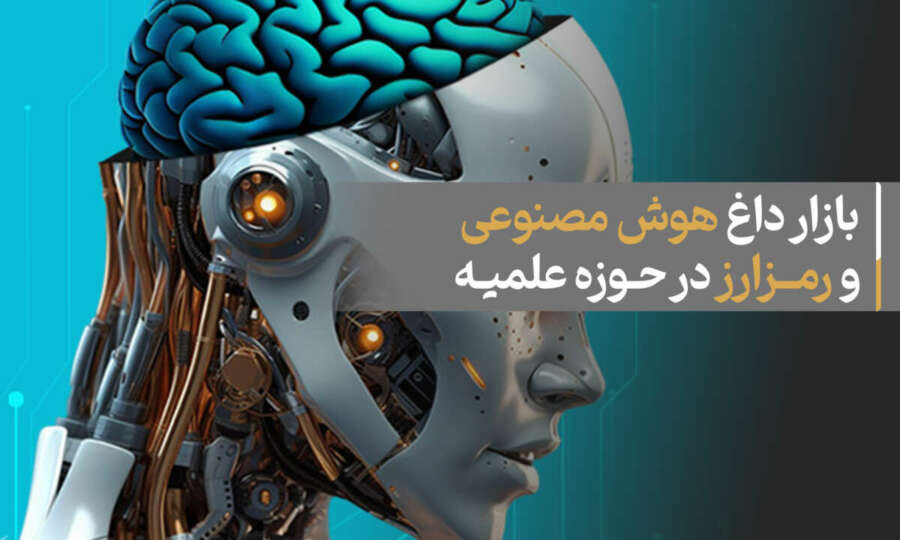The hot market of artificial intelligence and cryptocurrency at seminary
In the last few years, holding foreign courses under the title of “Contemporary Jurisprudence” has flourished in seminaries, and in the list of contemporary jurisprudence courses for the new academic year, 93 courses under 22 titles have been predicted.
According to the research institute of contemporary jurisprudence, quoted by IKNA, in the last few years, the holding of foreign courses under the title of “contemporary jurisprudence” has flourished in seminaries, and many professors have turned to new topics instead of dealing with the traditional and conventional topics of the seminary.
In the list of contemporary jurisprudence courses of the new academic year, 93 courses are provided under 22 titles, which are; Social jurisprudence, moral jurisprudence, administration jurisprudence, stock market and financial markets jurisprudence, insurance jurisprudence, medical jurisprudence, money jurisprudence, education jurisprudence, population jurisprudence, governance jurisprudence, government jurisprudence, family jurisprudence, media jurisprudence, international relations jurisprudence, crescent sighting jurisprudence Armed eye, jurisprudence of justice, jurisprudence of new contracts, jurisprudence of law, jurisprudence of agents, jurisprudence of Islamic economic system.
As can be seen, economic issues are superior to other issues in terms of quantity, which may be the reason for the necessity of rebuilding the foundation of Islamic economy and implementing it as an important pillar in the realization of the Islamic state.
In the meantime, the holding of two lessons by Abbas Ali Zarei for the jurisprudence of cryptocurrencies, as well as the holding of two lessons by Seyed Sadegh Mohammadi and Hossein Mofidi on the jurisprudence of artificial intelligence, are interesting points in this list.
The jurisprudence of artificial intelligence by Mohammad Mohammadi Qaini was established last year as well, and in it topics such as the definition of artificial intelligence, inference through artificial intelligence, the lack of rationality and thoughtfulness of artificial intelligence, the difference between artificial intelligence and human intelligence have been discussed. In a part of these discussions, it is stated as follows: “Another ability of the human mind is credit creation. I wrote down about four abilities for the mind. Let’s examine these and then see if this ability of the mind is used for inference, that is, the mujtahid infers with his own human intelligence based on the abilities of the mind, whether this ability of the human mind is also in artificial intelligence. If so, inference in artificial intelligence is also possible. We want to examine the ability of the human mind in artificial intelligence, some of which may be in artificial intelligence and some of which are not, but in general, we see and examine in the inference method. Some of these cannot be deduced if it is not in artificial intelligence.
What happens in medical jurisprudence class?
Another notable subject in this list is medical jurisprudence.Dealing with medical jurisprudence in the seminary has a history, and last year, courses titled “Medicine in Traditions” or “Islamic Medicine” were held in the seminary. One of the professors of this period is Rasul Bagheri Esfahani, who studied the verses of al-Abadan in the Qur’an. Among the topics that have been discussed in this class, we can mention the stages of embryo completion, exorcism, stone therapy, sore eyes, and asking for forgiveness for having children.
Abbas Tabrizian is one of the famous and marginal professors of these courses. The last lesson of Tabrizian in the archive of seminary lessons is from 1401. In these meetings, he examined the anatomy of the body, and the last discussion that was presented was about the reproductive system, and in this discussion, a strange way to restore virginity by soaking cotton in horse milk or calf gall bladder material was presented.
In addition to the courses that are directly related to medical and therapeutic issues, other courses are also held in the field to examine jurisprudence and medical legal rulings. For example, Mohammadi Qaini has examined issues such as doctor’s responsibility, publication of sanctity with breastfeeding in the case of artificial insemination and embryo donation in the courses of medical rulings.
In the medical jurisprudence course of Seyyed Sadegh Mohammadi, topics such as the status ruling of simulation, jurisprudential ruling of euthanasia and organ transplantation have been discussed and investigated. In a part of these discussions, it is mentioned about the status ruling of simulation: “Our discussion was about the status ruling of simulation and whether the child who has been simulated has a mother or not?” We expressed the sayings as much as this class could, and it might be disturbing to make it too long. Now we want to express Mukhtar’s opinion… one thing is certain that we use verses and traditions that every woman who gives birth is this mother. It is true that this honorable verse, “Indeed, their mothers, except those who give birth to them” is not a definition of a mother, but in the end, it can be understood from this verse that a woman who gives birth is a mother.
What lessons do maraji’ al-Taqlid teach?
Examining the curriculum of Taqlid sources shows that they are not very fond of new subjects and generally deal with traditional subjects. The subject of Ayatollah Nouri Hamdani’s jurisprudence lesson was “The Book of Salwa” and Ayatollah Javadi Amoli also examined “The Book of Judiciary” last year. The last subject taught by Ayatollah Makarem Shirazi was enjoining the good and forbidding the evil, which is related to the year 2020. Last year, Ayatollah Sobhani also chose the topic of usury to present a lesson. Ayatollah Shabiri Zanjani’s last subject he taught was the discussion of Mudarabah, which is related to 2015.

